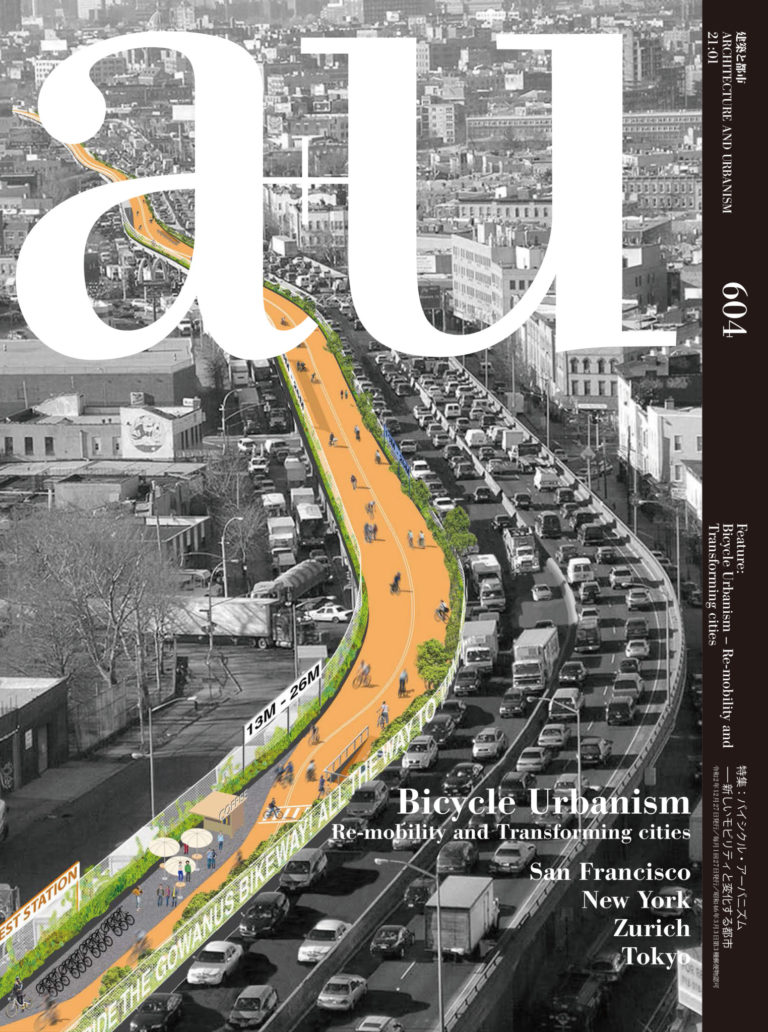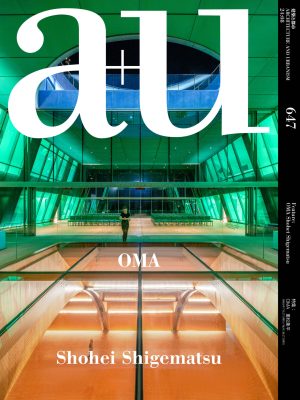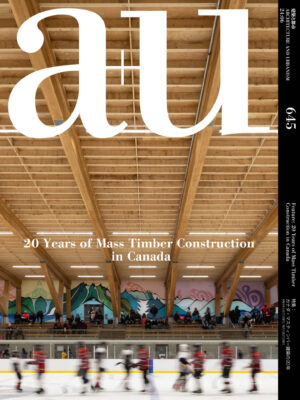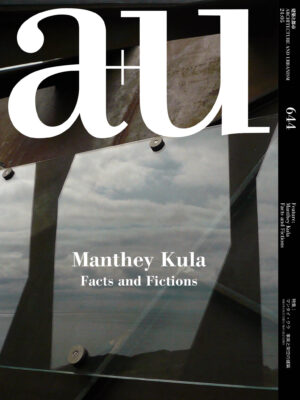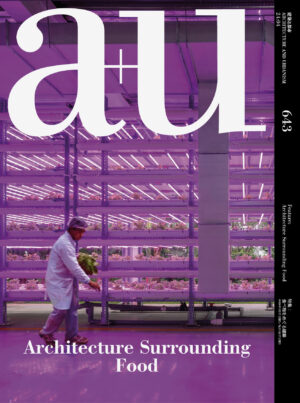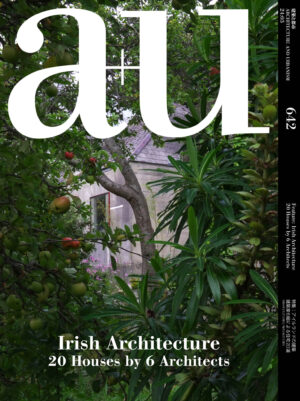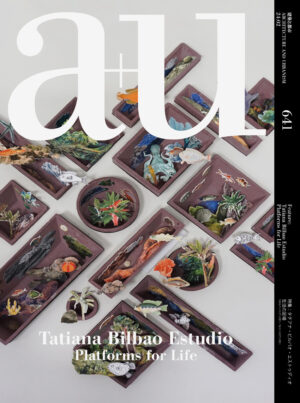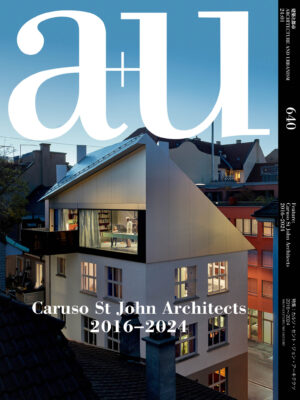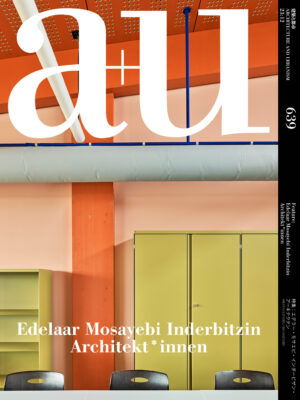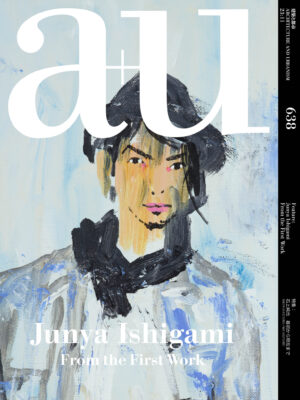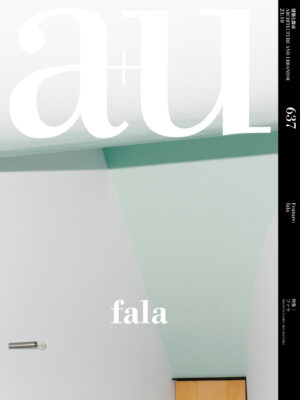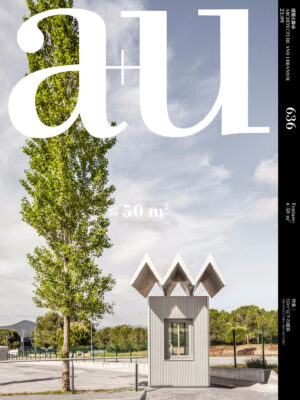a+u 2021:01 0Feature: Bicycle Urbanism – Re-mobility and Transforming cities San Franciso, New York, Zurich, Tokyo
Content
City planning centered around the movement of people and cars are starting to change.
Especially in recent years, transportation means such as small mobility are diversifying. However, there are many challenges to incorporating them into the urban structure of the 20th century.
This issue focuses on bicycles. Bicycles are truly representative of small mobility as a means of transportation, and are deeply rooted in people’s lives around the world. Yet, it has not been incorporated into city planning and its potential has never been fully realized. In the introduction, guest editor Manabu Chiba shared that by thinking about the “niche” of bicycles (the role to fill the gap), it opens up an opportunity to reinterpret the traditional urban structure. “Bicycle urbanism” may be the start to thinking about cities and mobility in the future.
5 offices from 4 cities participated in this issue, each proposing the concept of “bicycle urbanism” in their city. In addition, records of cities where such progress have been made, such as Copenhagen, are featured at the beginning of this issue. (a+u)
Introduction: Bicycle Urbanism – Towards Ecosystemic Urban Design Manabu Chiba
Essay: Cycling is so great Kees Christiaanse
Transforming Cities
Copenhagen, Nørreport Station / Utrecht, Utrecht Bicycle Parking / Barcelona, Passeig De St Joan Boulevard PHASE 1 / Madrid, Madrid Rio / Xiamen, Xiamen Bicycle Skyway / Limburg, Cycling Through Water / Limburg, Cycling Through the Trees / China, Shared Lady Beetle / Amsterdam, Mobile Pop-Up Bicycle Parking / New York, “Cycling in the City, A
200-Year History” / Frankfurt, “Ride a bike! Reclaim the city”
Essay: ‘Bicycle Urbanism’ in the Netherlands? Stefan Bendiks
San Franciso
John Bela and Christopher Reeves, Gehl
A Brief History of Bicycle Culture in San Francisco – Major Milestones
Establishing a new bicycling culture on Market Street – San Francisco’s busiest transit
corridor
A bold vision for human-powered mobility in San Francisco – Including micromobility –
skateboards, e-scooters, e-bikes and other rideables and an expanded bike culture
New York City I
Graci Mills, Raphael Laude and Adam Lubinsky, WXY Studio
New York City on Two Wheels – a very brief history
The Path to Equal Access: How can infrastructure better serve outer neighborhoods?
The Brooklyn-Queens Cycleway (BQC): Re-appropriated infrastructure for NYC’s outer
boroughs
Where does cycling fit into New York City history? / Who is NYC’s Cycling Community?
/ A Local Stop on the BQC: Sunset Park, Brooklyn
New York City II
Travis Bunt and Mathew Staudt, One Architecture and Urbanism
The Grid and the Greenway: Rethinking New York City’s transportation corridors in the
era of climate change
The Cross-town Greenway: A prototype for a new street type in Manhattan
The Triboro Corridor: A prototype for a new bicycle superhighway
Zurich
Kees Christiaanse, Joris Jehle, KCAP Architects&Planners
On Tricycles and White Bikes
Completing the Network
Locating Obstacles / Restructuring street layout / Europaallee / Cycling Tunnel / Promenade Urbaine / Bicycle Tracks 142 / Cycling Bridge 144
Tokyo
Chiba Manabu Architects and Chiba Manabu Laboratory, The University of Tokyo
30 m Heaven / A Vibrant Vista of Bicycle Parking / Weekend Void / Bicycle
backlane / Bicycle Highway and Leaf Rack / Buil.climb
Column: Pottering Oshika
Apploaches for a mobility and urbanism
Rapha / Toei Transportation / Institute of Public Design / PTV Group
